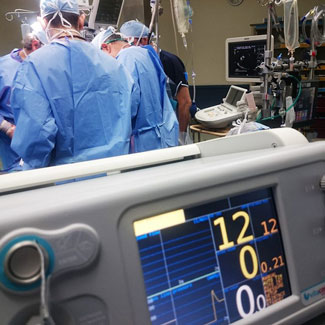Delayed Onset of Acute Limb Compartment Syndrome with Neuropathy After Nonarterial Extracorporeal Membrane Oxygenation Therapy
October 7, 2020
Delayed diagnosis and treatment can lead to permanent dysfunction in the limb involved. For early diagnosis, ICP monitoring is one of the most important objective findings. In this case, the medical staff did not recognize the risk of ALCS and ICP was not monitored; therefore, the diagnosis of ALCS was delayed resulting in permanent damage to the limb.
Abstract
Acute limb compartment syndrome (ALCS) is the result of compound symptoms resulting from poor oxygenation and decreased nutrition supply to muscles and nerves in a tight, confined compartment. The most common cause of ALCS is a tibia fracture, followed by blunt trauma to soft tissue-which are a surgical emergency.
Brief Case Description
This case reports an iatrogenic, non-traumatic ALCS case after venoarterialextracorporeal membrane oxygen (VA-ECMO) therapy. A 14-year-old male received VA-ECMO therapy due to cardiorespiratory failure after a tragic drowning episode. He experienced severe swelling following 10 hours are the ECMO treatment. Treated as a surgical emergency, the patient underwent a fasciotomy. Unfortunately, the time to diagnosis was delayed, and the patient suffered lack of muscle strength, multiple neuropathies. To date, this is the first reported case of non-traumatic ALCS after VA-ECMO in Korea.
Intervention and Outcome Summary
For a timely diagnosis, intra-compartmental pressure monitoring is the most accurate and efficient objective finding. When dealing with a patient with altered consciousness, it ensures a data-driven decision. Unfortunately, in this case the medical staff did not recognize the risk of ALCS and therefore the intra-compartmental pressure within the patient was not monitored, resulting in nerve damage. The results of the patient prove the importance of a timely diagnosis. This coincides with other reports that prove recovery of normal function in ALCS subjects who do not undergo a fasciotomy within 12 hours is rare.
Original Publication:
Annals of Rehabilitation Medicine
Authors:
Jin Young Go, Md, Yu-Sun Min, MD, and Tae-Du Jung, MD
Posted by Clinical Publication Group in Clinical Studies, Featured Articles
